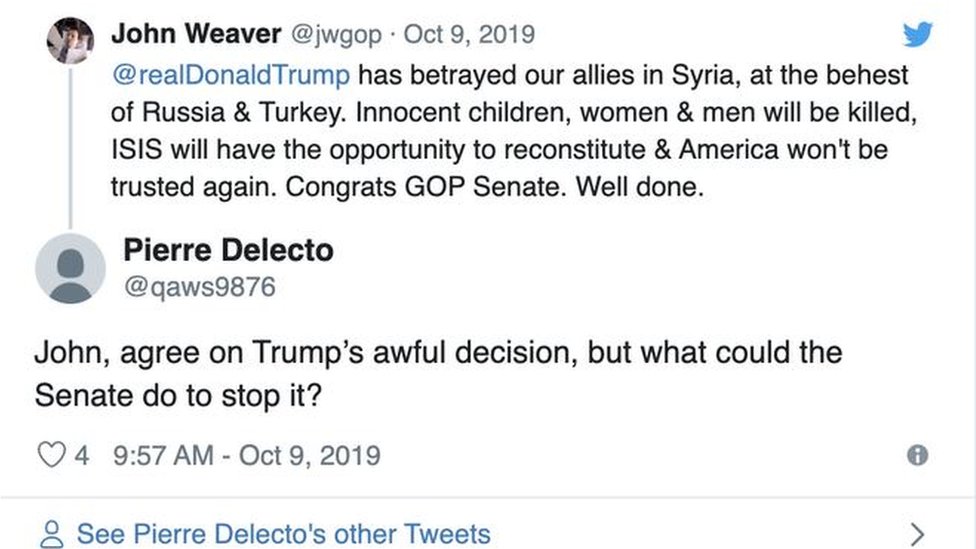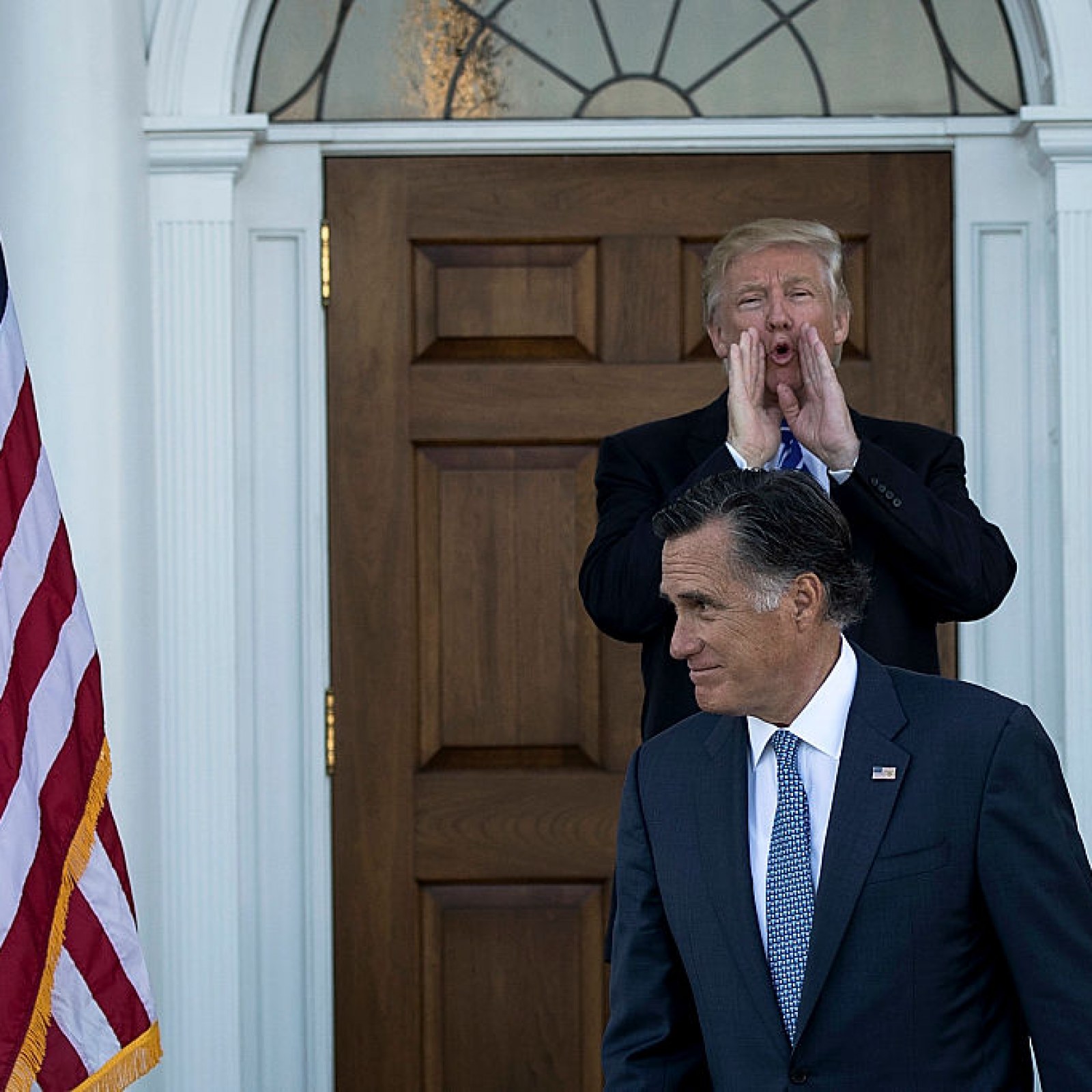Nathanael remembered the day EVERYTHING changed. He and some of his friends had been excited ever since this man known as John the Baptist had begun preaching and baptizing people in the Jordan south of Jerusalem. His friend Phillip had been down to hear the preaching. He came home full of fervor—full of enthusiasm for everything of God.
That morning when everything changed Phillip had come over to Nathanael’s farm and told him, “We have found the Messiah!” That was exciting news! Was it this John? But Phillip said, “No, it is not John. He has told the temple leaders, ‘I am not the Christ.’ But then, this man from close to here, from Nazareth, passed by, and John said, ‘It is he.’”
John Barron Is Not Don@ld Trump posted 6 times in the last month 'As we express our gratitude, we must never forget that the highest form of appreciation is not to utter words, but to live by them.'
Nathanael shook his head. Phillip was given to enthusiasms. That was usually a good thing…but sometimes, well, sometimes Phillip could be gullible. Nathanael gave Phillip one of those looks that only good friends can give to each other. “Can anything good come out of Nazareth?” he said.
Melania Trump is firing back at John Henson, TV host on the Food Network, calling his tweet about her 14-year-old son Barron “inappropriate and insensitive.”. Planet America host John Barron joins News Breakfast to look at the unprecedented scenes in Washington DC where protesters supporting president Donald Trump. John 20:1-9 Friends, our Easter Gospel is John’s startlingly concise account of the Resurrection. The Easter declaration, properly understood, has always been. The latest tweets from @barronjohn1946.
Nonetheless, Phillip had talked to this Jesus of Nazareth while they both were by the Jordan listening to John. He knew that Jesus was back in Galilee. Free download download of adobe acrobat reader for mac os x mohave. He prevailed and Nathanael went with him to talk with Jesus.
Before Phillip even introduced him to Jesus, Jesus said to him, “Here is a true child of Israel. There is no duplicity in him.” Nathanael was impressed and intrigued. It was true. He was bluntly and fully honest—there was no duplicity, no guile in him. But how could this Jesus from that tiny town of Nazareth know that?
Bluntly honest and to-the-point Nathanael just had to ask, “How do you know me?” Jesus’ answer was a surprise, “Before Phillip called you, I saw you under the fig tree.”
Wow! Now that incident had happened earlier that day and nobody was around. Nobody could have been close enough to hear. This time Phillip’s enthusiasm had been right on target. Bluntly honest and to-the-point Nathanael just had to reply, ‘Rabbi, you are the Son of God, you are the King of Israel.”
Yes, that was the day that EVERYTHING changed.
Feast Day of an Apostle
We hear little of Nathanael after that day. He followed Jesus. He was chosen to be among the Twelve. The synoptic Gospels (Matthew, Mark, and Luke) use the name Bartholomew, rather than Nathanael. In all four Gospels, this Nathanael/Bartholomew is closely identified with Phillip. The church has traditionally seen the two names as describing one person.
Some modern scholars question if it is really the same person. We don’t know. However, in digging around about it, I discovered that Nathanael is Hebrew and means “gift of God.” Bartholomew is Hebrew/Greek and means “son of the furrow.” For this reason, tradition has it that he was a farmer. I wonder if the name Bartholomew might have been a nickname the fishermen disciples gave Nathanael, the farmer. Pure conjecture!
Whatever the full story, today, August 24, is St. Bartholomew’s Feast Day with the scripture reading of the call of Nathanael.
Batholomew’s Focus, Fervor, and Fruit

When Franciscan and Dominican missionaries traveled to India in the 1300s, they found Christian colonies in two areas of the West Coast of India: in the central region near Bombay and toward the southern tip. These Christians had persisted in the practice of their faith without connection to the larger Church for over 1300 years. While St. Thomas is said to have evangelized those southern Christians, ancient historical documents credit St. Bartholomew with the establishment of the more northern Christian colony.

St. Bartholomew is also credited with establishing the Church in Armenia and is the patron saint of that area. Mac download flash.
Applications for Us Today
As readers know, I am fascinated by evangelism and how we can have and give to others what Nathanael had that day: an experience that brought him to follow Jesus and give himself up to him—so he, in turn, could give such an experience to others.
At Easter I began reading documents of Vatican II. I had read them before, but I chose several which seemed most relevant for current controversies and polarities in the church. Our Church teaches that revelation (ie, knowledge of God) is provided primarily through Sacred Scripture, especially the person of Jesus Christ. This revelation in the Bible is always primary, yet it is complemented and enhanced by the Magisterium of the Church. The Magisterium is formed through ecumenical councils (from the Council of Jerusalem in AD 48 through Vatican Council II 1962-1965) and their documents, along with other official Church teaching and documents.
In our current controversies and polarities, this foundational principle of Catholicism is a guide for us. As Fr. Denis at St. Meinrad taught us in Foundational Theology, “For us Catholics, there is no more certain expression of the Truth and Will of God in an age than the decisions and documents of an ecumenical council acting in concert with a pope.” Such was Vatican Council II.
So, reading 2-3 pages a day, beginning with Lumen Gentium, The Domestic Constitution on the Church, I have examined what the documents of Vatican II say to us. They have said much to me. At the forefront is new awareness of the call to action for us laity to have fervor, focus, and fruit.
Vatican II clearly says: The job of the laity is to sanctify the world. In our ordinary lives we are to build the Kingdom of God by the way we work at our jobs, do business, raise our families, participate in our communities, and interact with each other. We are to live by grace and the Holy Spirit and by the Ten Commandments in the midst of the world. We are called to build the Kingdom of God through moving the world ever closer to match God’s standards of both personal morality and social justice by the fervor and joy with which we live our Christian lives. Such a call is clearly founded on Scripture, expressed clearly in multiple Vatican II documents, and in our catechism.
Back to the Call of Nathanael and How He Answered
Folks, we are not doing this. Instead, we are focusing on condemning the world or people who disagree with us. My pastor made a good suggestion to me the last time I went to confession: “Focus,” he said. “Just look at what you need to do. Leave the rest to God.” As I have thought about that, I remember a lesson my father taught me as a little girl about the value of wearing blinders.
We had two mules that my father used to cultivate crops. I remember helping him as he harnessed the mules, then walking behind him as he cultivated to uncover anything that got covered by dirt. I asked why put blinders on the mules. Daddy’s answer was, “The only way you get a straight row is to keep the mule from looking right or left. When the row’s not straight, too many plants are dug loose and die. That might be all your profit, and it’s a waste.”
Nathanael answered the call to Jesus, quietly went about being his disciple, and, after the Ascension, went East to make disciples. He was focused. He must have been fervent. He was successful. While 14th century missionaries found the worship of the Christians in India to be very different from that of the Roman Rite, the core teachings of Jesus were in place after 1300 years of isolation. And Armenia became the first nation to adopt Christianity as its national religion—in 301, before Constantine’s conversion. St. Batholomew’s work was solid. He bore fruit.
Nathanael is a good model for me, for us. Build solid. Build focused. Bear fruit.
Prayer:
Lord, today we honor St. Bartholomew—a man whose identity is unclear, but whose work was solid. Thank you for him, for his fervor, his focus, and his fruit. Help us to build your Kingdom, O Lord. Help us to build it solid, with no duplicity, with a focus. Help us to build on what our Church teaches us about how your revelation comes to us and what we are supposed to do. Help us to put blinders on to everything that would distract us from solid church teaching and building the Kingdom of God. Return our fervor. Keep our rows straight. Lead us, guide us, Lord.

John Barron Twitter
NOTE: This Monday morning Bishop Barron came out with a FAQ sheet that elaborates on what I have said here about Vatican Council II. Xyzmaker software download mac. It can be found at https://www.wordonfire.org/vatican-ii-faq/




